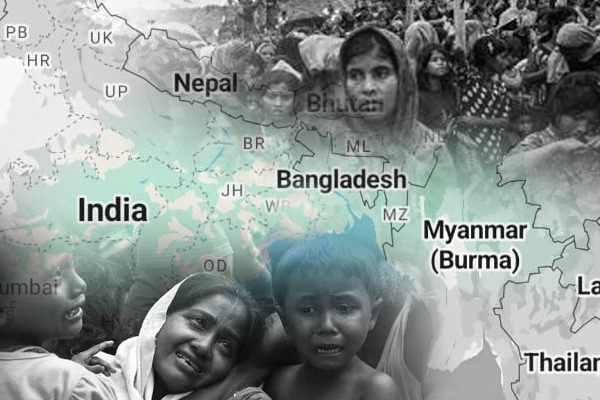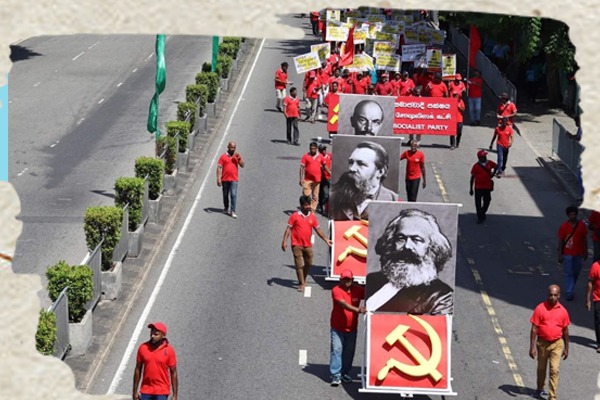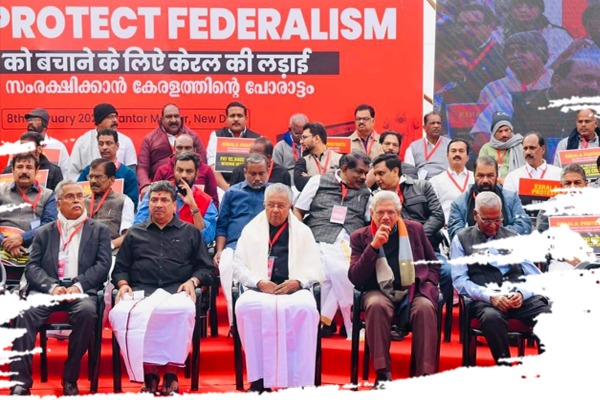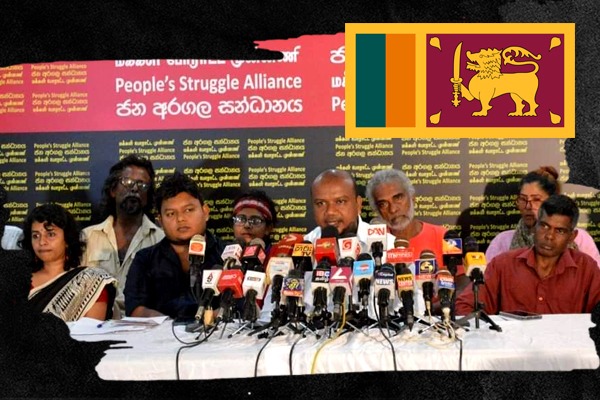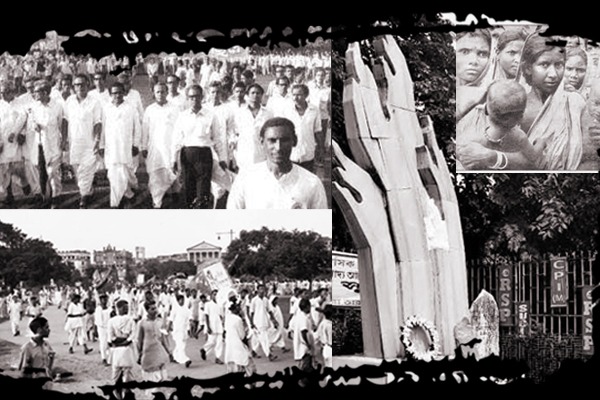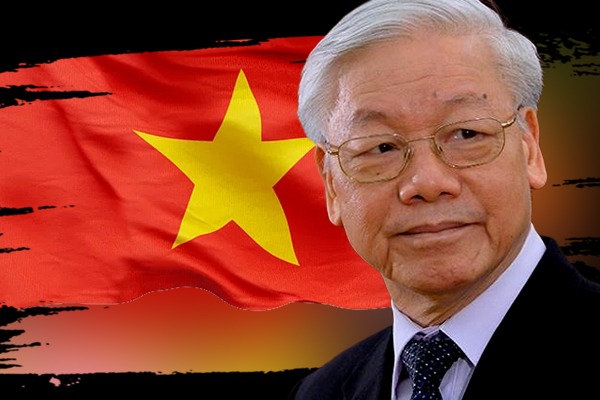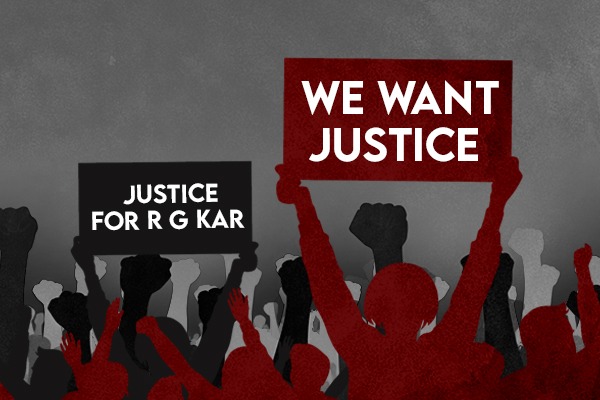They are the unwanted of the world. In the refugee ghettos of Cox’s Bazar, on the battered boats drifting across the Bay of Bengal, or trapped in liminal zones between nations, the Rohingya exist in a condition Giorgio Agamben might describe as “bare life”—stripped of rights, voice, and belonging. But their silence is not natural. It is manufactured. Engineered. Starved into them by imperial legacies, fascist ethno-nationalism, and a global capitalist order that views surplus populations as disposable.
The story of the Rohingya—nearly one million of whom languish stateless in Bangladeshi camps eight years after fleeing genocidal violence in Myanmar—is not a humanitarian crisis. It is a political crime.
A People Without a Country—By Design
To understand the Rohingya’s abandonment is to understand the logic of modern borders and bourgeois nation-states. The very idea of the nation, as Benedict Anderson reminds us, is an “imagined community”—but for the Rohingya, that imagination has been ruthlessly exclusive. Branded as “illegal immigrants” from Bengal despite centuries of presence in Rakhine (Arakan), their citizenship was formally stripped in 1982 under Myanmar’s military regime, a classic move in the toolkit of authoritarian statecraft: create an internal enemy, then eliminate them.
But the roots go deeper. British colonialism in Burma actively exploited and transplanted labor populations, sowing ethnic divisions that remain explosive. The Rohingya became the convenient scapegoats—Muslim in a Buddhist-majority nation, dark-skinned in a society where racism maps closely onto class.
In a Marxist frame, their expulsion from Myanmar in 2017—what the UN called a “textbook example of ethnic cleansing”—was not merely communal hatred. It was part of a broader project of capitalist land accumulation. The Rakhine region, rich in natural gas and strategically located along China’s Belt and Road routes, had to be “cleared” for development. The Rohingya—impoverished and politically voiceless—were the first to be cast aside.
Camps That Cage, Not Shelter
Today, the refugee camps of Bangladesh stand as monuments to the international community’s failure—and to the complicity of regional powers, including India and China. What was once framed as a temporary humanitarian gesture has become a carceral system. The camps are overcrowded, militarised, and surveilled, with fences and watchtowers that would not be out of place in a penal colony.
In Marxist terms, this is what happens when surplus labor becomes surplus life. The Rohingya—unable to legally work, move, or organize—are not even afforded the dignity of exploitation. They are warehoused, not welcomed. Relief is rationed, not guaranteed. UN food aid has been slashed to $8 per month per person due to falling global funding—a grotesque reflection of neoliberal austerity in global governance. This is not charity denied; it is punishment imposed.
And while NGOs and liberal governments wring their hands about “donor fatigue,” it must be asked: Why should feeding the hungry depend on the whims of imperial philanthropy in the first place? Why must the Rohingya’s survival hinge on aid flows from the very states that armed and enabled their oppressors?
Asia’s Authoritarian Consensus
The real scandal, however, is regional. Bangladesh—already strained and facing climate crisis-induced displacement of its own—is showing signs of Rohingya fatigue. Prime Minister Sheikh Hasina, once praised for sheltering the refugees, now speaks the language of burden and security. Crackdowns on Rohingya leaders, restrictions on movement, and forced relocations to flood-prone Bhasan Char island have intensified.
Under Narendra Modi, India has increasingly aligned itself with a more overt and institutionalized ethno-nationalism. In BJP rhetoric, the Rohingya are not victims but invaders—Muslim infiltrators undermining Hindu India. Deportations have begun, and BJP leaders boast of “cleansing” Indian cities. This is Hindutva logic in action: expel the other, erase the history, consolidate the vote.
China, meanwhile, buttresses Myanmar’s military junta while maintaining a calculated silence on the plight of the Rohingya. Its investments in Rakhine—pipelines, ports, and special economic zones—speak louder than any hollow diplomatic gesture. In a world where capital flows freely but people do not, the Rohingya are simply in the way.
Even the so-called Islamic world offers no solidarity. Saudi Arabia and the Gulf monarchies, rich from oil and Western arms deals, offer no resettlement or meaningful pressure. Malaysia, once a destination for Rohingya boats, now turns them back. Indonesia detains them. Everywhere, borders have closed, and the doors of empathy have been bolted shut.
Stateless and Speechless: The Death of Rights
What does it mean to live without a state? Hannah Arendt warned us that the loss of a homeland is the loss of the “right to have rights.” The Rohingya experience this daily. No citizenship, no passport, no vote. No access to justice, education, or employment. A generation of children is growing up in tents, learning neither Bangla nor Burmese, their identities suspended in limbo.
The capitalist order has no place for those who do not generate profit or reinforce national labor markets. In this system, refugees are tolerated only as temporary spectacles—until they become permanent embarrassments. Then, they are hidden, criminalised, or pushed back to death.
In the name of “voluntary repatriation,” Bangladesh and Myanmar—with UN complicity—have tried to send refugees back to the killing fields they fled. The Rohingya refuse. They demand citizenship, safety, and dignity. Their defiance, however quiet, is revolutionary.
What Is to Be Done?
For the global Left, the question is not how to “save” the Rohingya but how to stand with them. Solidarity must replace saviourism. That begins with naming the systems at work: colonial legacies, capitalist land grabs, fascist ethno-nationalism, and the humanitarian-industrial complex.
The situation calls for following demands:
- The immediate restoration of Rohingya citizenship in Myanmar, and international guarantees of safety and justice.
- Full rights—including education, work, and movement—in host countries like Bangladesh, India, and Malaysia.
- The transformation of refugee camps into permanent zones of exclusion and abandonment.
- Reparations funded by the global North, which bears historical responsibility for the colonial cartographies and military sales that fuelled this crisis.
The Rohingya are not a charity case. They are a people—rooted in history, forged through struggle, and still bearing a voice the world refuses to hear. Their liberation must be part of the broader fight against all forms of racialised dispossession and statelessness, from Palestine to Western Sahara, from Kashmir to the Congo.
In every child born behind a fence in Cox’s Bazar, we see the face of a world divided by barbed wire and profit. The Left cannot look away.

